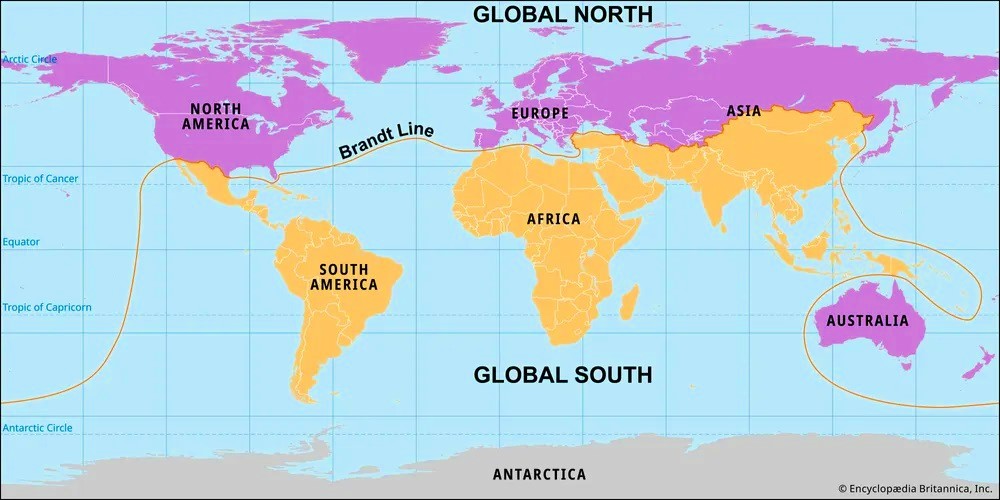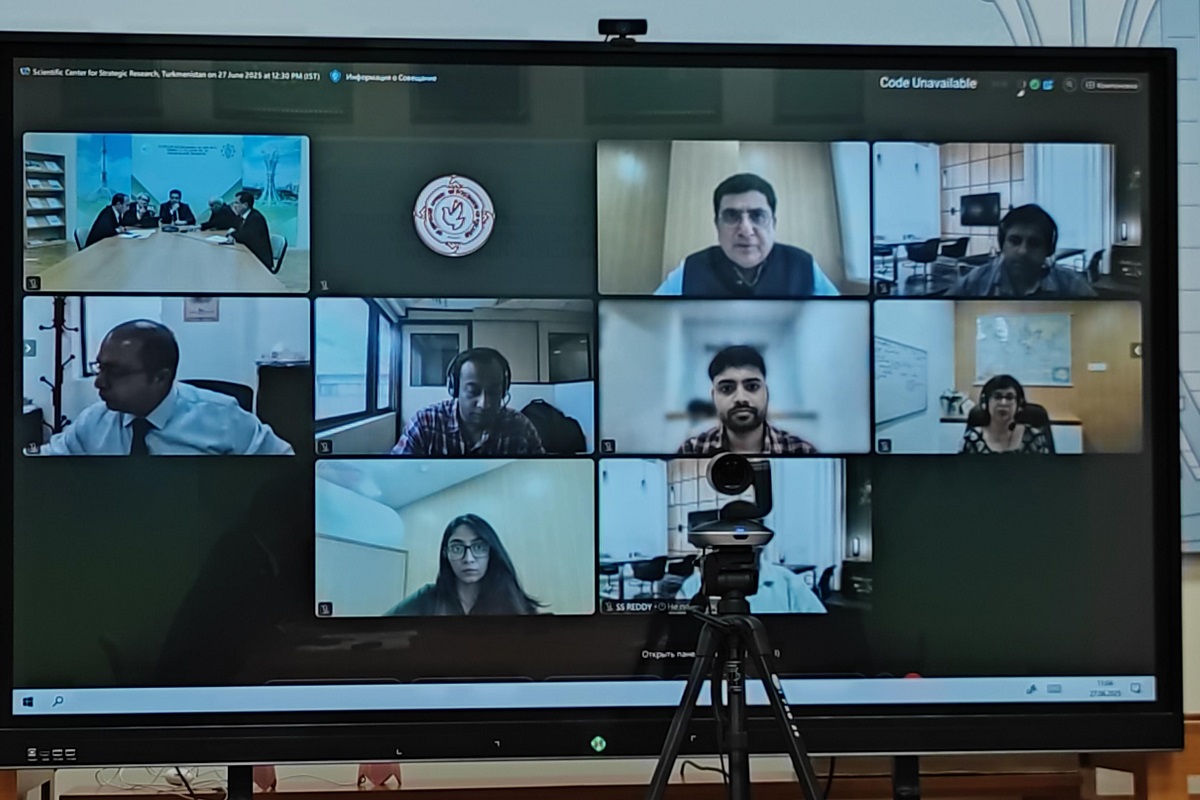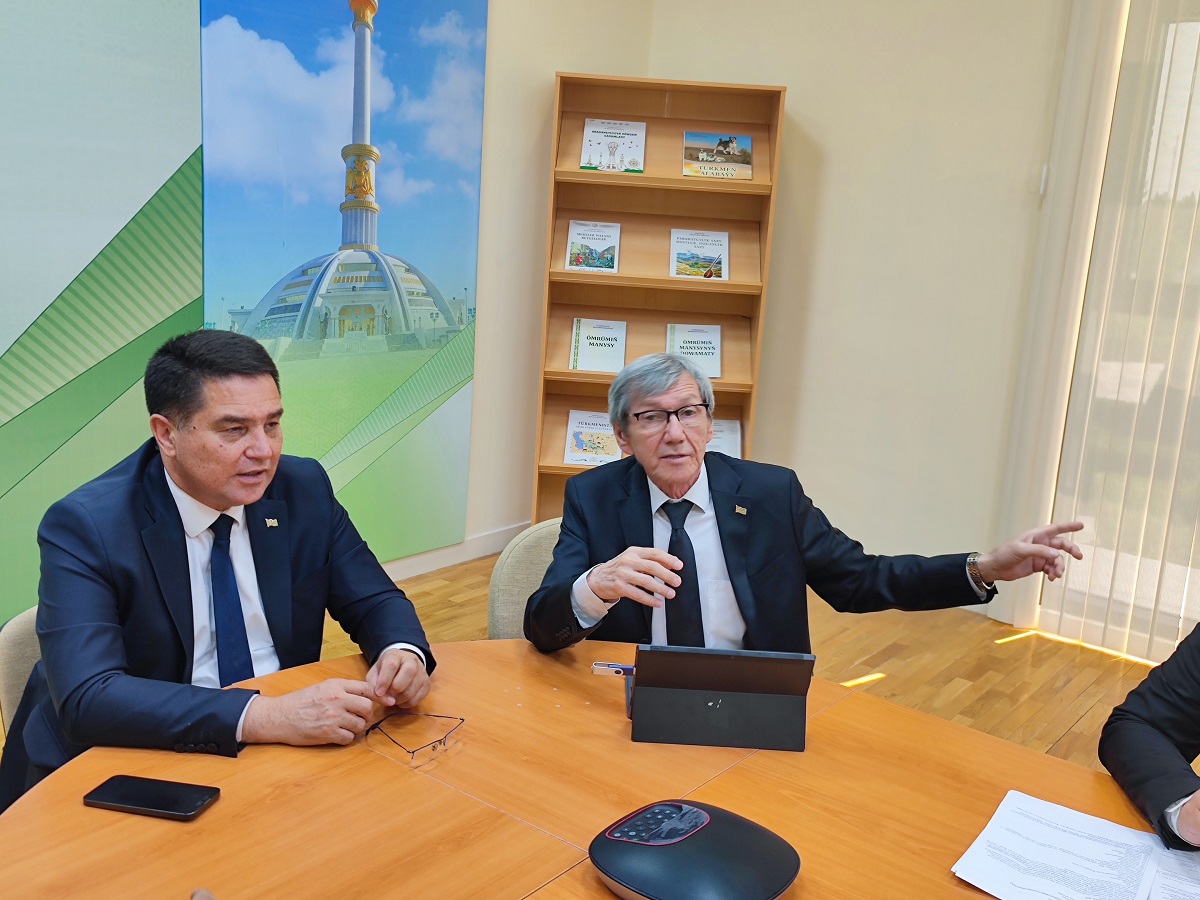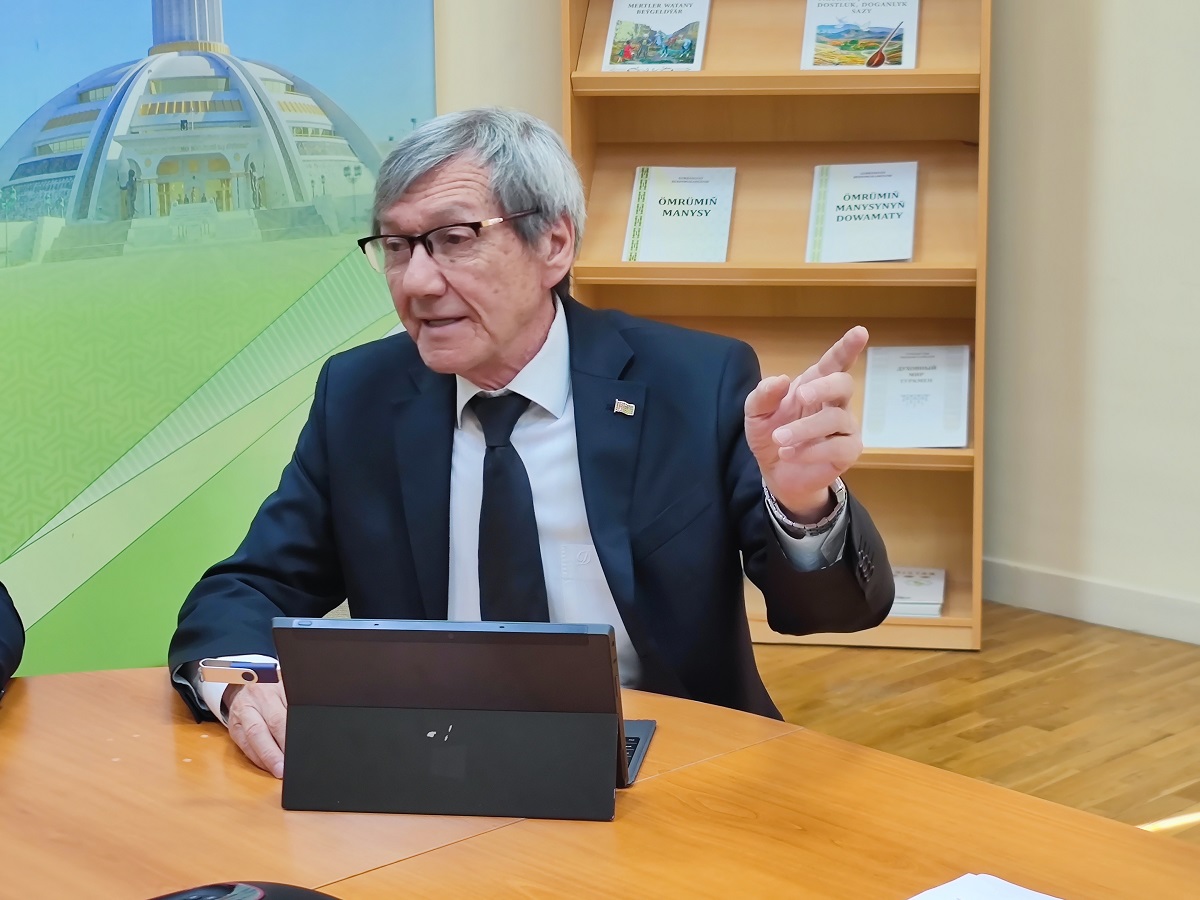
As the existing world order undergoes a period of profound transformation, the Global South is emerging as an increasingly influential actor on the international stage. This is a present-day reality that cannot be denied.
Yet the semantic content of the term “Global South” remains in need of clarification. The phrase is both overly schematic and imprecise in interpretation. It is, therefore, not surprising that, despite its widespread use in the media, its meaning is not always fully understood.
Historical and Theoretical Underpinnings of the Concept of the Global South
In its broadest sense, the “Global South” refers to countries with low levels of economic development, high rates of poverty, and heightened vulnerability to global economic and environmental challenges.
By this definition, the term encompasses the world’s poorer southern nations, while the North is portrayed as their wealthy opposite.
But what of Japan, South Korea, or Israel? It would be difficult to classify any of these as “impoverished southerners.”
Such semantic inconsistencies are far from isolated and may understandably confuse readers. For instance, in the Southern Hemisphere, supposedly the poorer half of the globe, countries like Australia and New Zealand thrive, while in the supposedly affluent Northern Hemisphere, economically underdeveloped nations such as Haiti and Chad struggle.
The point is this: the geographical labels “South” and “North” are burdened with political and economic connotations that go beyond their literal cartographic meanings.
In addition to “poverty,” attributes commonly associated with the Global South include limited access to education, underdeveloped healthcare systems, weak infrastructure, and a historical legacy of colonial subjugation.
Thus, the term “Global South,” while not strictly geographical, reflects political and economic realities shaped by global inequality.
The phrase itself can be traced back to Carl Oglesby, one of the leading thinkers of the American “New Left,” who first used it in a 1969 article on the Vietnam War. He argued that the system established over recent centuries by the nations of the North had produced an unjust world order in which the North exploits the South.
More than half a century has passed since then, and yet the Global South, despite its internal diversity, continues to strive for a more equitable global structure. And it does so with such vigour that the movement has now become one of the central players in the emerging multipolar world.
The potential of Global South countries is considerable: they are home to 85% of the world’s population and account for 39% of global GDP. According to expert forecasts, by 2030, three of the world’s four largest economies will be part of the Global South, namely China, India, and Indonesia. Given current global trends, this prediction appears entirely credible.

The Global South Today
In recent years, countries of the Global South have demonstrated remarkable political dynamism, actively contributing to the development of new frameworks for cooperation such as BRICS, the Shanghai Cooperation Organisation (SCO), and the Group of 77 – the largest intergovernmental organisation of developing nations operating within the United Nations system.
Last year, as part of preparations for the COP29 Climate Conference, the National Forum of Non-Governmental Organisations of Azerbaijan launched an initiative to establish a Global South NGO Platform. The proposal received broad support from many countries across Asia, Africa, Latin America, and Oceania, together comprising more than two-thirds of the world’s states. As a result, this new NGO platform has brought together organisations from over 110 countries.
Through such initiatives, the countries of the Global South are asserting their economic and political interests by establishing their own mechanisms and institutions of cooperation.
The platform has attracted the attention of international organisations and media alike. A Global South NGO Platform World Forum is planned for 2026, where concrete projects will be presented and new partners engaged.
DAKSHIN and Turkmenistan: Points of Convergence
A year earlier, Indian Prime Minister Mr Narendra Modi proposed the establishment of the DAKSHIN – Global South Centre of Excellence.
The Centre is focused on promoting sustainable development and enhanced connectivity between Central and South Asia, as well as on integrating Afghanistan into regional cooperative initiatives in areas such as healthcare, green technologies, transit and transport, and environmental protection.
In many respects, the activities of the Global South Centre of Excellence align with the priorities of post-soviet Central Asian states.

It is only logical that Turkmen research institutions have actively engaged in this mutually beneficial dialogue. The initiative for establishing direct contact came from the DAKSHIN team, whose work, as noted by participants in an online conference held at the Centre for Strategic Studies of the Institute of International Relations under the Ministry of Foreign Affairs of Turkmenistan, is directly overseen by the Prime Minister of India.
Within a short span of time, the Global South Centre of Excellence has established connections with 149 leading think tanks across 88 countries, aiming to build an expansive and diversified partnership network.
It is also worth highlighting that, despite its relatively recent establishment, the Centre for Strategic Studies at the IIR of the Turkmen MFA has already forged solid working relationships with relevant institutions across Central Asia, the Caucasus, Turkey, Russia, China, and the Republic of Korea. The Centre has actively participated in a range of conferences, consultations, seminars, and similar platforms.

The aforementioned online conference with DAKSHIN staff was marked by a constructive and professional atmosphere.
Both sides presented their immediate plans and expressed their readiness to maintain working-level contacts, as well as to sign a document that would provide a legal framework for ongoing dialogue – one that would further strengthen Turkmenistan’s longstanding partnership with the countries of the Global South.
This was the core theme of the Turkmen experts’ discussions with their DAKSHIN colleagues.

The Origins of Turkmenistan’s Engagement with the Global South
Turkmenistan’s cooperation with the countries of the Global South dates back to the early years of its independence. As early as the 1990s, the country had established diplomatic relations with key nations across Asia, Africa, and Latin America.
Since proclaiming its status of permanent neutrality in 1995, Turkmenistan has pursued its foreign policy based on respect, non-interference, and mutual benefit, placing particular emphasis on relations with states that advocate for a just international order, cultural diversity, and recognition of alternative models of development.
Today, as the world enters a new phase of multipolarity and the Global South emerges as a platform for meaningful action on climate, food security, public health, and digital transformation, Turkmenistan is stepping up its engagement in these regions. It offers a clear model of partnership, free from external pressure or geopolitical conditionality.

Current State of the Dialogue
In the present context, Turkmenistan’s policy of neutrality serves as a pillar of trust and opens up additional avenues for diplomacy.
It is precisely this neutral status that allows Turkmenistan to maintain balanced relations with both India and Pakistan, and to act effectively as a mediator in Afghan and Tajik reconciliation processes by hosting various negotiation formats.
Turkmenistan is equally successful in developing relations with Iran, Qatar, Egypt, and Indonesia – despite their differing geopolitical alignments.
In other words, the status of neutrality provides the country with a genuine foreign policy advantage, enabling it to build ties even with states that are in conflict with one another.
At present, Turkmenistan is developing its relations with the countries of the Global South along several key lines: political dialogue and diplomatic engagement, economic cooperation, humanitarian and educational exchange.
In recent years, official Ashgabat has held high-level meetings and conducted diplomatic exchanges with Afghanistan, India, Egypt, Indonesia, Cuba, Brazil, and others. These interactions are founded on mutual respect, aimed at broadening the bilateral agenda, and place particular emphasis on Turkmenistan’s neutral status.
Notably, strategic partnerships with India and China are evolving within the framework of treaties on friendship and cooperation. One of the tangible outcomes of such collaboration includes joint initiatives to establish energy, transport, and telecommunications corridors.
Despite the volatile situation in Afghanistan, Ashgabat has for many years persisted in its efforts to develop trade and economic relations with Kabul, seen as a crucial partner whose stability significantly affects that of the broader Central Asian region.
Particular focus has been placed on energy and transport. As a result of these efforts, major projects are under way, including the construction of the TAPI gas pipeline, the electricity transmission and fibre-optic line, and the transnational Turkmenistan–Afghanistan–Pakistan railway.
In addition, Turkmenistan provides regular humanitarian assistance to Afghanistan on a systematic basis. With India, cooperation continues not only in the aforementioned sectors but also in pharmaceuticals and telecommunications. The Turkmen side has expressed keen interest in leveraging India’s IT industry and medical tourism potential.
Dialogue with Egypt is ongoing via the chambers of commerce and industry, with discussions centred on the export of Turkmen textiles and mineral fertilisers.
Diplomatic relations are also developing with Latin American countries such as Brazil, Cuba, and Venezuela, accompanied by exchanges of views on climate issues, healthcare, and sustainable development.
Ashgabat further supports economic initiatives within Global South platforms, including the Group of 77 conferences and the BRICS+ dialogue, where prominent southern economies are represented.
In the humanitarian domain, Turkmenistan promotes the idea of bringing nations closer together through regular cultural events, exhibitions, and academic conferences involving a wide range of countries. The Global South is by no means an exception in this regard.
For example, last year Turkmenistan took part in an international conference on the preservation of intangible cultural heritage, organised by UNESCO, alongside representatives from Indonesia, Mali, Peru, and Mexico.
A New Format of Southern Partnership
Given the growing climate challenges – especially acute for countries situated in arid zones – cooperation with the African Union presents a promising avenue, particularly in areas crucial for Turkmenistan such as combating desertification, developing water technologies, and advancing sustainable agriculture.
In turn, Turkmenistan is well-positioned to offer countries of the Global South the export of fertilisers (a sector that receives significant attention from the Turkmen authorities), as well as irrigation solutions and participation in humanitarian programmes.
There is also considerable scope for expanding cooperation in healthcare and pharmaceuticals, considering the increasing demand among Global South countries for affordable medicines and medical technologies. In this regard, Turkmenistan could intensify its engagement with India, Brazil, and Cuba, all of which have developed advanced pharmaceutical industries. There is even potential for establishing joint production facilities on Turkmen soil.
In the context of climate change, Turkmenistan offers platforms for dialogue to Global South countries, including the upcoming Third United Nations Conference on Landlocked Developing Countries, to be held in Avaza. There, Ashgabat’s initiative to create a Regional Centre for Climate Technologies will be discussed.
There is also strong potential for Global South participation in Turkmen-led initiatives, particularly in renewable energy projects.
Turkmenistan’s Neutrality and the Philosophy of the Global South
When comparing the principles underpinning the Global South movement and Turkmenistan’s neutrality, one finds both commonalities and distinct differences.
This is a complex and relatively underexplored subject, as it involves two multifaceted phenomena: the Global South as a political-ideological construct, and Turkmen neutrality as a specific foreign policy strategy, formally recognised under international law.
Among their shared characteristics are the prioritisation of peaceful dialogue, non-alignment, emphasis on expanding international cooperation, and the pursuit of a multipolar world order.
Both paradigms – be it the Global South or Turkmenistan’s neutrality – favour peaceful conflict resolution, mediation, and constructive dialogue. Turkmenistan does not join military-political alliances, aligning with the philosophy of non-aggression and non-interference that is in spirit close to the position of many Global South countries.
The Global South, particularly through the Non-Aligned Movement, seeks to remain outside bloc-based confrontations. Turkmenistan’s neutrality likewise entails abstention from participation in conflicts and a refusal to host foreign military bases on its territory.
Both the Global South and Turkmenistan are focused on expanding economic, humanitarian, and technological cooperation. However, a key distinction lies in their orientation: while the Global South often looks to cooperate beyond Western-centric structures, Turkmenistan is open to engagement with all willing partners. In this way, the country consistently underscores its neutral stance in interstate relations and promotes the depoliticisation of international projects.
When it comes to multipolarity, the Global South’s ideology is based on rejecting Northern dominance and advocating for a fairer international order grounded in the equality of states. Turkmenistan, by contrast, adopts a more conciliatory position – promoting a conscious balance of interests, non-interference, and respect for sovereignty without seeking confrontation in pursuit of these principles.
Moreover, while the Global South often takes on an oppositional stance in the international arena – issuing declarations, calling for reforms, and criticising existing systems – Turkmenistan’s approach is consistently peacebuilding, mediatory, and constructive, relying on diplomacy, dialogue, and proactive initiatives.
The Global South strives for systemic change to the global architecture and for reforms to international institutions such as the UN Security Council and the World Trade Organisation. Turkmenistan’s aims are more state-centric: to strengthen national sovereignty, ensure high levels of domestic stability and development, and prevent conflicts through preventive measures and diplomatic tools on the international stage.
Conclusions and Prospects
From the foregoing, it is clear that both concepts, Turkmenistan’s neutrality and the philosophy of the Global South, are rooted in a shared ethical and value base. They both uphold principles of equality, peace, and sustainable development.
However, their institutional and functional frameworks differ: Turkmen neutrality represents the strategic behaviour of a single state, which convincingly demonstrates the advantages of neutralism through its own example, while the Global South is a collective movement.
Turkmenistan seeks to balance itself within the global system without engaging in confrontation, whereas the Global South is oriented toward reshaping the global order as a bloc.
Yet both Turkmenistan’s neutrality and the Global South movement are not rigid political doctrines. Rather, they are living, evolving concepts that reflect a common desire for a more just world, free from war and violence, each in their own way.
In conclusion, it is evident that Turkmenistan’s cooperation with the countries of the Global South is gradually acquiring a more systematic and forward-looking character.
By leveraging its status as a permanently neutral state, Turkmenistan maintains relations with its Southern partners on the basis of mutual respect, pragmatism, non-alignment, and low politicisation.
This cooperation is largely focused on the economy, sustainable development, culture, and education – making such a partnership well-positioned for further expansion. The recently initiated online dialogue with the Global South Centre of Excellence (DAKSHIN) is a clear testament to this course and lays a solid foundation for future fruitful discussions and joint initiatives aligned with shared goals and principles.
Bekdurdy AMANSARYEV,
Centre for Strategic Studies Institute of International Relations, MFA of Turkmenistan
